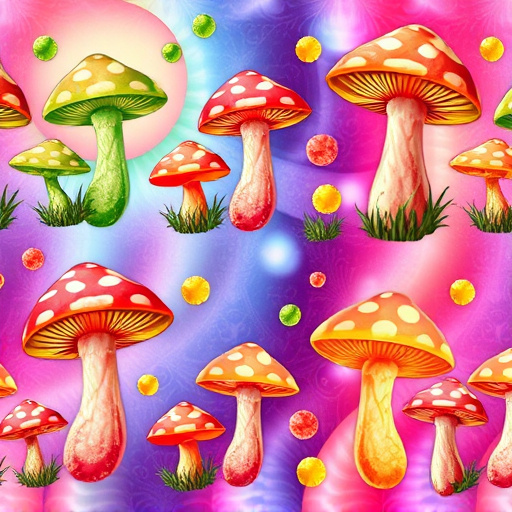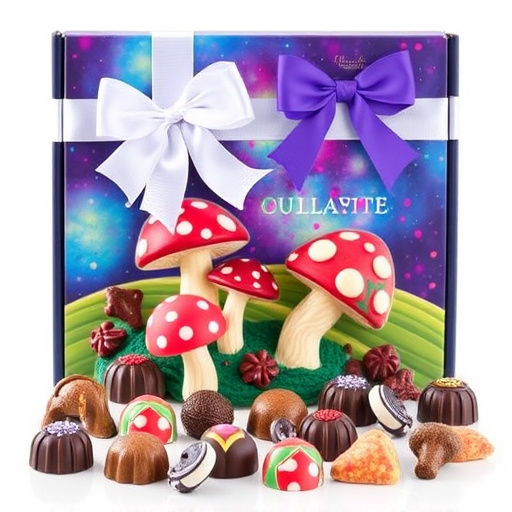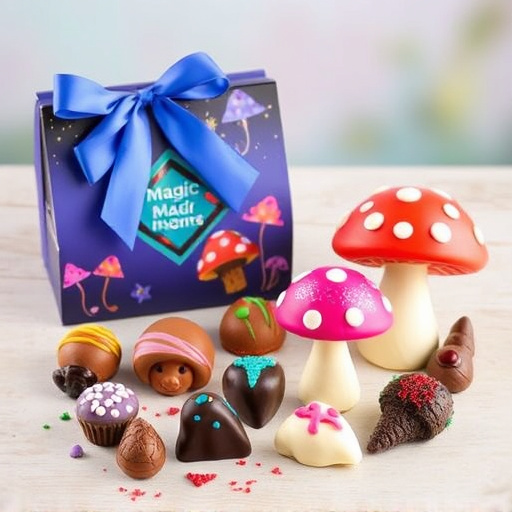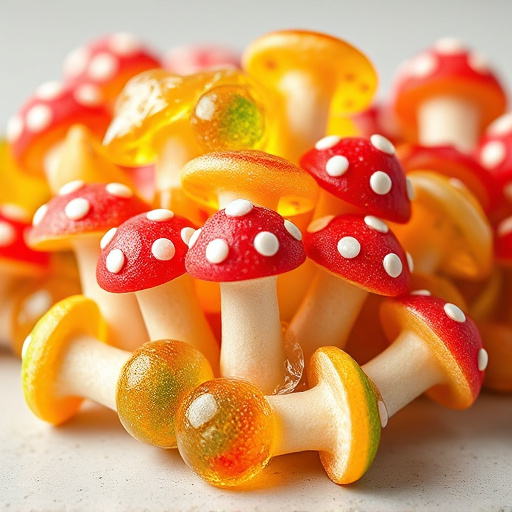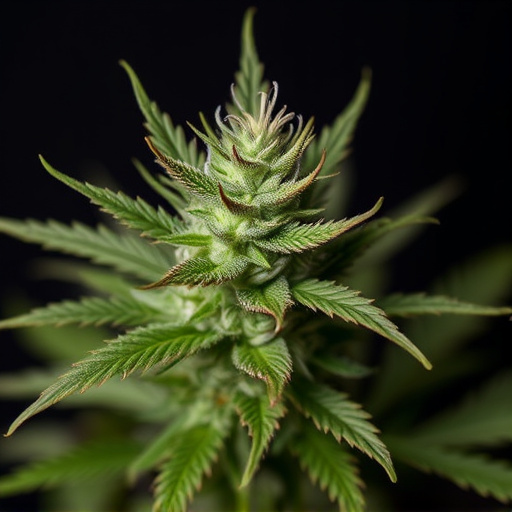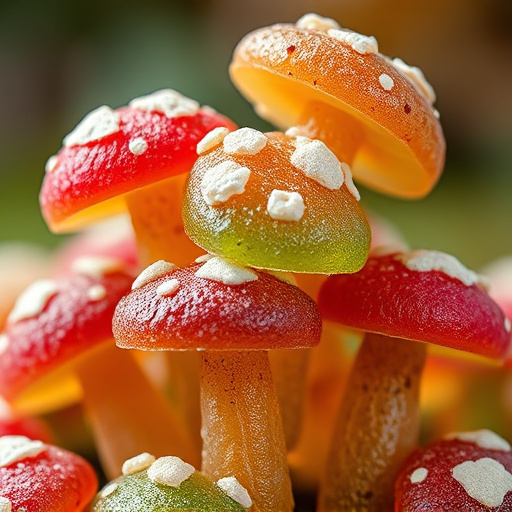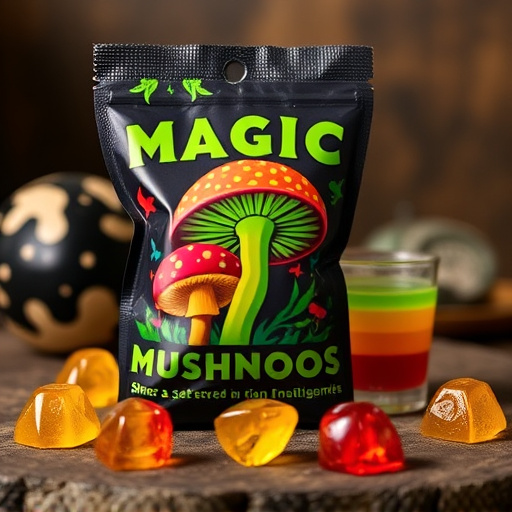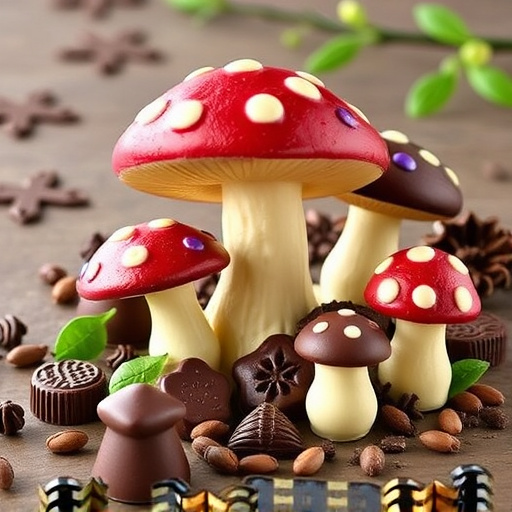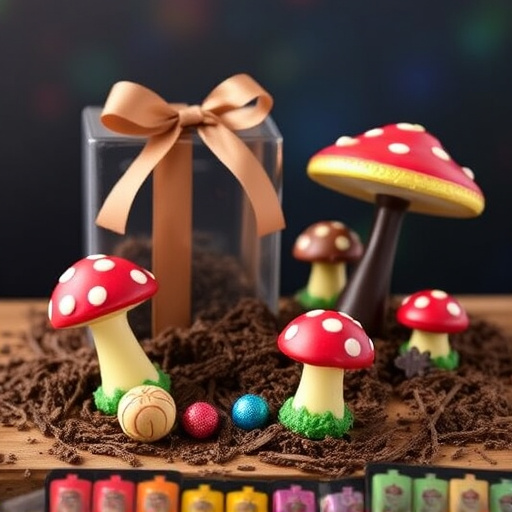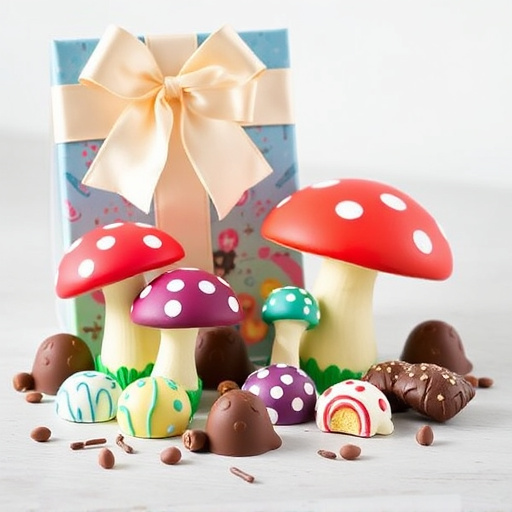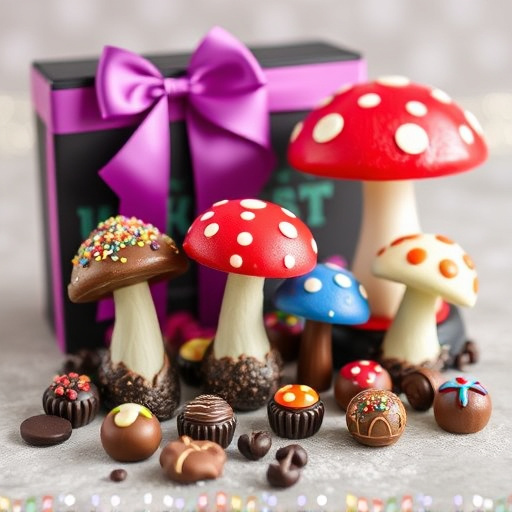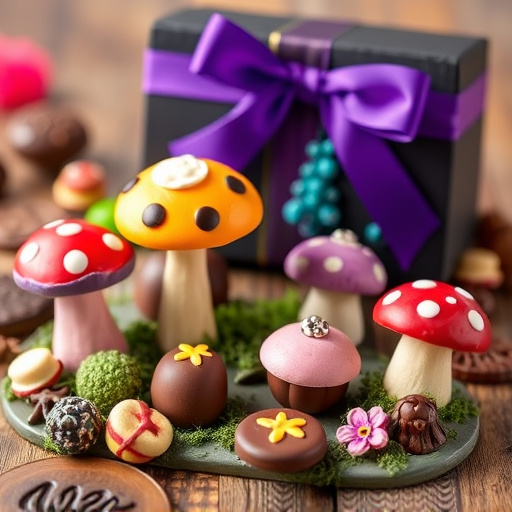Magic Mushroom Chocolates combine ancient Mesoamerican practices with modern scientific understanding, using psilocybin compounds from magic mushrooms. These chocolates offer a sophisticated way to explore potential therapeutic or placebo effects, appealing to those seeking alternative wellness solutions. The placebo effect plays a crucial role in their experience, as expectations and beliefs can trigger real physiological changes. Navigating the legal landscape requires caution due to varying regional regulations, and responsible consumption is essential to mitigate potential risks.
Discover the intriguing world of Magic Mushroom Chocolates, a unique twist on indulgent treats with a complex history. This article explores their growing popularity, delving into the placebo effect and its influence on user perception. We also navigate the legal landscape and potential risks associated with high-potency Magic Mushroom Chocolates, shedding light on an emerging trend that’s sparking both curiosity and debate.
- Magic Mushroom Chocolates: A Unique Treat with a Complex History
- Understanding the Placebo Effect and its Impact on Perception
- Navigating Legalities and Potential Risks of High-Potency Magic Mushroom Chocolates
Magic Mushroom Chocolates: A Unique Treat with a Complex History
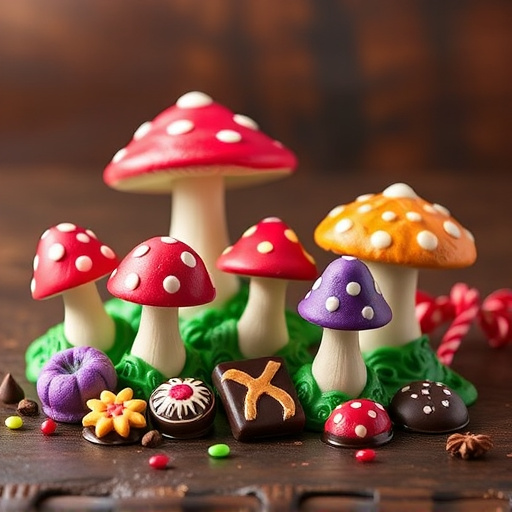
Magic Mushroom Chocolates represent a unique culinary experience with roots in ancient practices and a modern twist. These chocolates, infused with compounds found in psilocybin mushrooms, have gained attention for their potential therapeutic effects, often referred to as the placebo effect. The history of using mushrooms in medicinal and ritual contexts stretches back millennia, with various cultures recognizing their psychological and spiritual properties. Today, incorporating magic mushrooms into chocolate form offers a sophisticated way to explore these effects, appealing to those seeking alternative wellness solutions.
The complex history of these chocolates intertwines ancient wisdom with contemporary research. As early as 500 CE, Mesoamerican civilizations utilized mushrooms for their psychoactive properties, believing them to facilitate communication with the divine. Fast forward to modern times, scientific studies are uncovering the neurochemical basis behind the placebo effect, offering insights into how belief and expectation can influence one’s perception and experience. Magic Mushroom Chocolates thus embody this intersection of tradition and science, providing a novel approach to wellness and sensory exploration.
Understanding the Placebo Effect and its Impact on Perception

The placebo effect, a fascinating phenomenon in medicine, can significantly influence how individuals perceive and experience magic mushroom chocolates or any other substance. When participants in a study are given a dummy treatment or a substance believed to contain an active ingredient (like psilocybin found in magic mushrooms), their expectations and beliefs can lead to real physiological changes. This effect highlights the powerful role of the mind-body connection, where mental states can impact physical sensations and perceptions.
In the context of magic mushroom chocolates, understanding the placebo effect is crucial. If a person expects to experience heightened awareness or euphoria due to the chocolate’s supposed magical properties, their brain may release endorphins or create a positive feedback loop that reinforces these feelings, even if the chocolate itself doesn’t contain active psychotropic compounds. This highlights how subjective experiences can be and the importance of setting and expectations in any exploration involving consciousness-altering substances.
Navigating Legalities and Potential Risks of High-Potency Magic Mushroom Chocolates
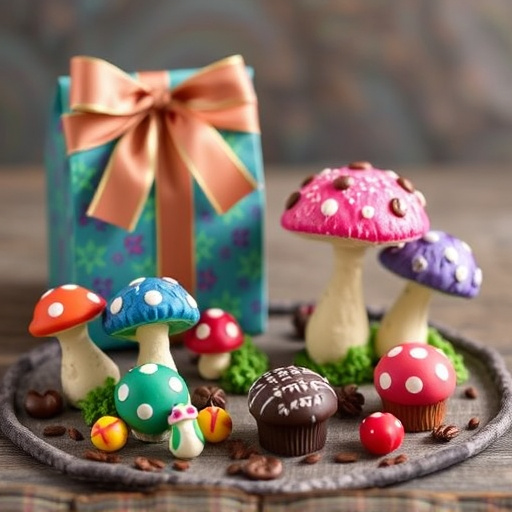
Navigating the legal landscape surrounding Magic Mushroom Chocolates can be a complex task, as regulations vary greatly across different regions. These confectioneries, often containing psychotropic compounds like psilocybin, are subject to strict controls due to their mind-altering properties. While some areas have decriminalized or even legalized psilocybin for medicinal and research purposes, others maintain stringent prohibitions, classifying these chocolates as controlled substances. Understanding local laws is paramount for consumers and manufacturers alike to avoid legal repercussions.
The potential risks associated with High-Potency Magic Mushroom Chocolates are another crucial consideration. Unlike the placebo effect, which can be beneficial in certain therapeutic settings, psilocybin consumption may lead to intense psychological reactions, including altered perceptions, anxiety, or even fear. These experiences, known as bad trips, can be distressing and may trigger underlying mental health issues in susceptible individuals. As such, responsible consumption and education about the compounds within these chocolates are essential to mitigate risks and ensure a positive experience for consumers.
The world of magic mushroom chocolates is a fascinating blend of ancient tradition and modern innovation, offering a unique culinary experience. However, as we’ve explored, understanding the intricate relationship between the placebo effect and perception is key to navigating this complex topic. While these chocolates present intriguing possibilities, it’s crucial to approach them with informed caution, considering both their potential benefits and risks in light of their growing popularity.
